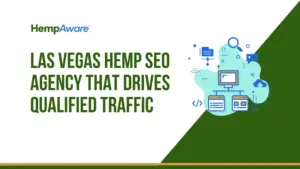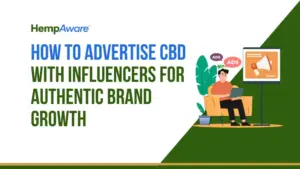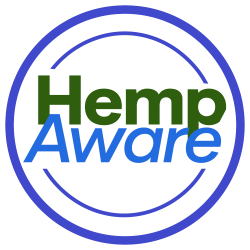Knowing the Always Changing Terrain of Cbd Marketing in the United States
Selling CBD seems simple—hemp-derived, legally approved, and a booming trend based on federal laws. However, advertising cbd in different states is like playing chess while someone else is moving the pieces. One minute you comply; the next you trash half of your ad money since some hidden state code has changed. Here is the fact devoid of spin: The federal position will not shield you from state-level headaches.

States treat hemp-derived CBD as a visitor with high maintenance needs. friendly on paper, but most often overlooked on a house rule checklist. While some states hand fines for so much as a Google ad targeting their citizens, others allow you yell “CBD!,” figuratively from billboards. Those who want to succeed in the market have to be sensitive to this sly pulse.
Let’s get in and examine where things stand, which obstacles keep tripping campaigns, and how to create commercials that won’t earn you a strong call from a state attorney general.
Federal Laws Represent Only Beginning Point
Hemp-derived CBD is authorized federally since the 2018 Farm Bill—if it has less than 0.3% THC. One could imagine this starting a national CBD marketing frenzy. Federal authorities like the FDA and FTC instead remain wary. They are fast to attack bogus health claims and have not approved CBD as a food ingredient or dietary supplement.
Stack fifty sets of state regulations over that now. Over night, local variables muddy the clear road you have set for your upcoming campaign. A tagline or testimonial from California may destroy your effort in Idaho or South Dakota.
State-by-State CBD Marketing Policies
Every marketer fantasizes of a single, perfect playbook. Actually, a quilt of state policies, some more irregular than an old baseball mitt.
California: Prospectives and Hazards
California should be easy, a CBD powerhouse with the biggest legal cannabis market in the United States. Not precisely. Legal CBD from hemp is one thing; the California Department of Public Health maintains that you cannot add CBD in food, drink, or nutritional supplements. And never even consider claiming health or wellbeing; the state slams the book at anyone selling CBD as a treatment or cure. Digital advertisements should silence medical promises, and influencers should focus more on personal narratives than on miracle testimonies.

New York: Perfect but Not Unreachable
Though their regulations are absolutely clear: online and print ads cannot contain any fraudulent or deceptive health claims, New Yorkers welcome daring. Not promises regarding the cure of anxiety, sadness, or chronic pain. The law also requires businesses to reveal if hemp is their source of CBD. Near playgrounds and schools, outdoor ads are not appreciated. Staying aboveboard implies your creativity must be more about open ingredient sourcing than it is about wellness magic.
Texas: A Masterpiece in Balance
The Lone Star State friendlier to CBD than one would think. Marketing is allowed, but once more—no health or curing words. The Texas Department of State Health Services has started policing companies claiming their candies or tinctures will cure diseases. Tight labeling rules mean that disobedience might quickly destroy a digital campaign. Here the secrets are openness and avoidance of the “C” word (cure).
Florida: The Devil in the Details
With hundreds of CBD stores, Florida’s market is sizzling. Advertisements here are not a free-for-all, though. Ads claiming CBD treatments or prevention of particular ailments are banned by the state. Every advertisement requires a QR code directly connected to lab results unique to batches. Less about hype, more about science here. If you market here, your game of verification needs to be perfect.
South Dakota and Idaho: Treat Them Carefully
Some companies completely avoid Idaho and South Dakota. Only items with 0% THC—for real—are allowed in Idaho. Even traces in a full-spectrum CBD product can set off enforcement. Although hemp-derived CBD is allowed in South Dakota in 2020, advertising still is limited, particularly on social media. Triple-check your formulations and your disclaimers if you are thinking about a big campaign.
Social Media Advertising: An Unpredictably Wild West
Digital is, of course, where the battles rage. Facebook, Instagram, TikHub, Google all have established their own limits. Paid ads for ingestible CBD stay off-limits on most major platforms as of 2024. Some allow pre-approval and proof for topical items exception.
You therefore have to become inventive. The actual workhorses are organic material, postings driven by education, and influencer collaborations. But influencers have to tread carefully. Promising pain alleviation or anxiety relief has caused brands and spokespeople fines by state AGs.
The day is won by transparency. Show certificates for product testing always. Never buried the side effects or disclaimers. Ask questions instead of discounting issues. Your audience and state authorities are closely observing.
Emails, Newsletters, Direct Campaigns: Low Risk, Not No Risk
For CBD marketers, email still is the backbone. Don’t use that as a green light, though, for outrageous assertions. Tight spam filtering allow state regulations to apply should your messages find their way in restricted states.
Some states demand disclaimers in all advertisements, on whatever platform. If you sell across the country, go with the most strict warning language. Indeed, your call-to-action can resemble fine print gone crazy. Still, it beats a regulatory slap on the wrist.
Key Traps Marketers Cannot Afford to Overlook
Never make promises of medical miracles. Safer than “effective anxiety relief” is “supports relaxation.” If you find yourself inclined to stretch limits with testimonials or reviews, consider educative, open narrative instead.
Third-party lab reports are practically required, not only good optics. Users of mobile devices want QR codes connecting to lab reports for every product. State officials enjoy comparing batch numbers with internet claims.

Ingredients are also important. If your product includes any THC—however little—do not advertise in states requiring 0.0%. Tightly maintain SKU segregation. Exclude states where formulations deviate from stringent guidelines and carefully map your advertising.
Keeping Ahead: Tools Every CBD Marketer Needs
Save state department webpages under bookmarks. Join CBD industry groups; many of them routinely inform members of policy changes. Get newsletters from law firms focused on cannabis compliance. Some routinely distribute notices regarding state-wide pending or new advertising rules.
Talk to professionals in quality compliance. Create campaigns based on the gold standard, not only what your own state demands. Recall that emails and digital adverts fly across state boundaries in the blink of an eye.




